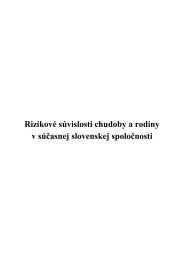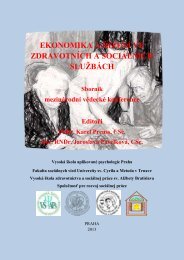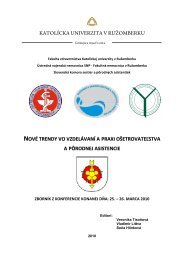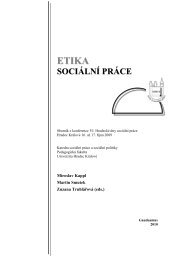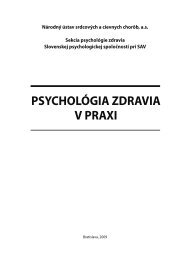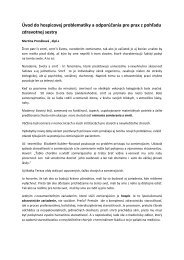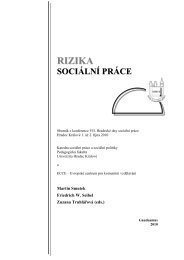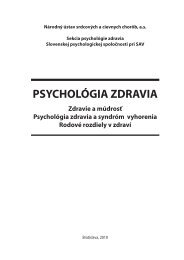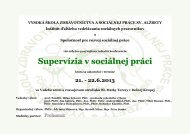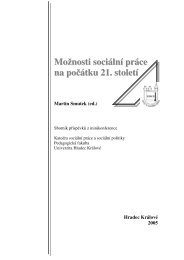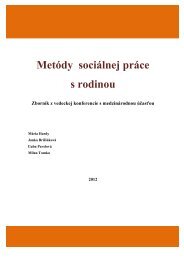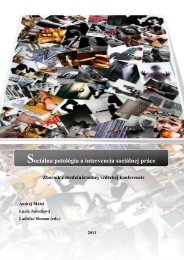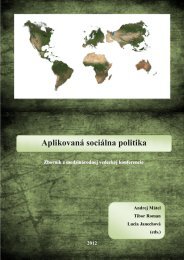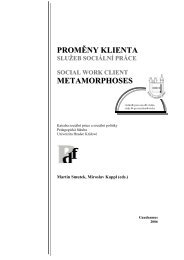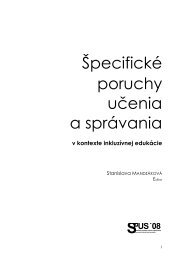Zmena klÃmy â možný dopad (nielen) na obyvateľstvo - Prohuman
Zmena klÃmy â možný dopad (nielen) na obyvateľstvo - Prohuman
Zmena klÃmy â možný dopad (nielen) na obyvateľstvo - Prohuman
You also want an ePaper? Increase the reach of your titles
YUMPU automatically turns print PDFs into web optimized ePapers that Google loves.
According to the Articles 4 and 6 of the United Nations Framework Convention<br />
on Climate Change (UNFCCC), all Parties are committed to promote and cooperate<br />
in education, training and public awareness related to climate change and<br />
encourage the widest participation in this process, including that of non-governmental<br />
organizations. The Amended New Delhi Work Programme (AmNDWP),<br />
the 5-year work programme on Art 6 of UNFCCC (2007 COP13/CMP3, Bali) sets out<br />
the scope of, and provides for action on activities related to Article 6. The guiding<br />
principles of the programme are largely congruent with the Integral Approach,<br />
this new framework support implementation of at least principles a, d, e, f and g:<br />
a A country-driven approach;<br />
b Cost-effectiveness;<br />
c A phased approach integrating Article 6 activities into existing climate change<br />
programmes and strategies;<br />
d Promotion of partnerships, networks and synergies, in particular, synergies<br />
between conventions;<br />
e An interdiscipli<strong>na</strong>ry approach;<br />
f A holistic, systematic approach;<br />
g The principles of sustai<strong>na</strong>ble development.<br />
How to define Sustai<strong>na</strong>bility?<br />
“Our vision for the future is of a region that embraces common values of solidarity,<br />
equality and mutual respect between people, countries and generations. It is a region<br />
characterized by sustai<strong>na</strong>ble development, including economic vitality, justice,<br />
social cohesion, environmental protection and the sustai<strong>na</strong>ble ma<strong>na</strong>gement<br />
of <strong>na</strong>tural resources, so as to meet the needs of the present generation without<br />
compromising the ability of future generations to meet their needs.” (UNECE Strategy<br />
on ESD 2005)<br />
Several principles of the Education for Sustai<strong>na</strong>ble Development (ESD) (UNECE,<br />
2005) could be efficiently implemented through Integral Four Worlds and the<br />
Centre Approach, supporting a holistic, transformative, transcultural learning<br />
process. Bellow, the relevant principles are cited and the expressions that directly<br />
relate to Integral Approach are highlighted:<br />
The development of a sustai<strong>na</strong>ble society should, therefore, be seen as a continuous<br />
learning process, exploring issues and dilemmas, where appropriate answers<br />
and solutions may change as our experience increases. (EAST – Developmental)<br />
140



